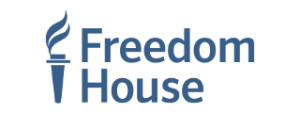Freedom House


Over the last few years, civil liberties and freedom of expression in Turkey have continued to deteriorate. The arrests of politicians, academics, and journalists and increasing media and Internet censorship have dramatically decreased Turkey’s democracy score (source: Economist, 2020).
As pressures and restrictions on Turkish citizens’ right to freedom of expression continue to plague the media, Freedom House, a U.S. based NGO that conducts research and advocacy on democracy, political freedom, and human rights, wanted to assess the perceptions and perspectives of Turkish citizens. Given the increasingly fragile environment, Turkish citizens are hesitant to express their honest opinions in public forums, especially sensitive topics. Freedom House needed a solution that would not risk any respondents’ privacy to ensure they could share their thoughts and experiences safely and honestly.
The survey findings expose a story counter to what the Turkish government, led by Recep Tayyip Erdoğan, have to say about censorship, freedom of expression, and media freedom. Turkish citizens are starved of vital and high-quality information on various topics due to the government’s increasingly tight grip on the entire media spectrum and information sector. The data also revealed opportunities for expression, especially amongst Turkey’s youth population. Because of the mistrust Turkish citizens have for their government, social media and online publications emerge as the top choice for people choosing to get their news.
This type of research is critical to understanding the effects of the government’s repressive actions in Turkey. The recent passage of the law on social media, which gives the authorities more control over content online, is a further blow to free speech in Turkey because it affects not only outspoken journalists and activists, but the broader public as they turn increasingly to online media for information and expression. Gina S. Lentine Senior Program Officer, Freedom House